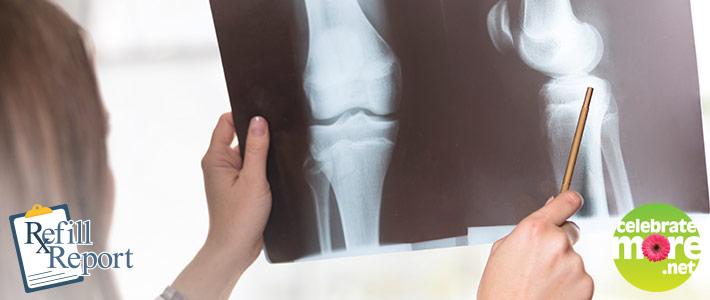 March was National Nutrition Month and our Supermarket Dietitians provided lots of wonderful resources on the Dietitian’s Corner section on our website as well as posted some fantastic content on Facebook and other social media platforms. Even though we are officially into April, I thought I would spend a little time talking about one of the conditions that can arise due to poor nutrition, Osteoporosis or bone density loss.
March was National Nutrition Month and our Supermarket Dietitians provided lots of wonderful resources on the Dietitian’s Corner section on our website as well as posted some fantastic content on Facebook and other social media platforms. Even though we are officially into April, I thought I would spend a little time talking about one of the conditions that can arise due to poor nutrition, Osteoporosis or bone density loss.
Osteoporosis is a disease in which the bones become weak and are more likely to break. People with osteoporosis most often break bones in the hip, spine, and wrist. In the United States, millions of people either already have osteoporosis or are at high risk due to low bone mass. Osteoporosis can occur in both men and women and at any age, but it is most common in older women.
Some risk factors are:
- Gender, women more than men.
- Age. The older you are, the greater your risk of osteoporosis.
- Body size. Small, thin women are at greater risk.
- Ethnicity. White and Asian women are at highest risk. Black and Hispanic women have a lower risk.
- Family history. Osteoporosis tends to run in the family.
- Low calcium and vitamin D intake.
- Activity level. Lack of exercise or long-term bed rest can cause weak bones.
- Smoking and alcohol.
A bone mineral density test is the best way to check your bone health. This test can diagnose osteoporosis and tell you whether you are likely to break a bone. This also will check bone strength and see if treatments are making the bones stronger.
To help keep your bones strong and slow down bone loss, you can:
- Eat a diet rich in calcium and vitamin D (low-fat milk, yogurt, and cheese. Foods with added calcium such as orange juice, cereals, and breads)
- Exercise
- Not drink in excess or smoke.
Treatment for osteoporosis includes:
- A balanced diet rich in calcium and vitamin D
- An exercise plan
- A healthy lifestyle
- Prescription medications, if needed.
Stop by and talk with our Pharmacists if you have any questions or would like help finding supplements for calcium and vitamin D.
Jason Miller, Pharm. D.
Pharmacy Clinical Program Manager









